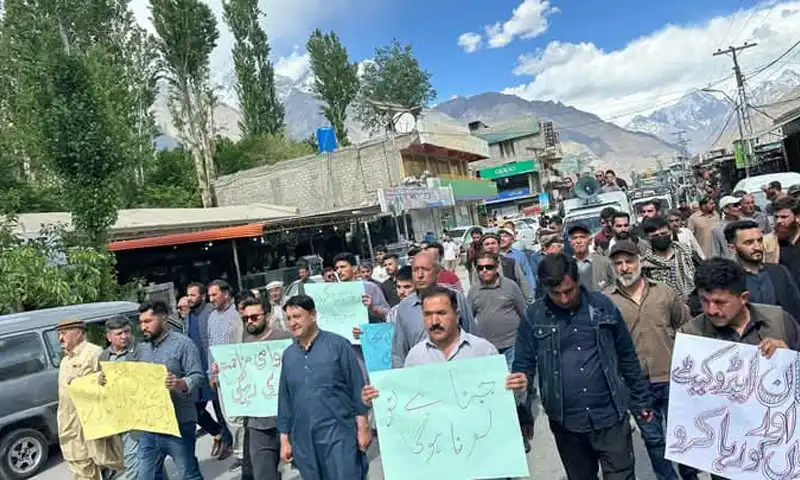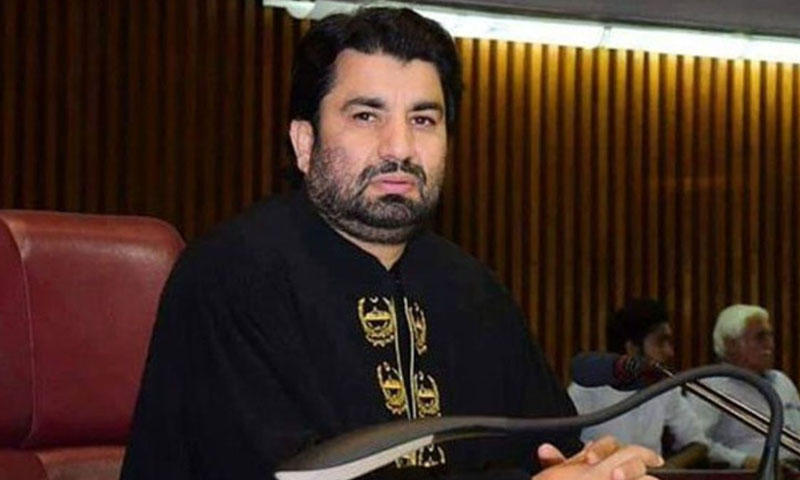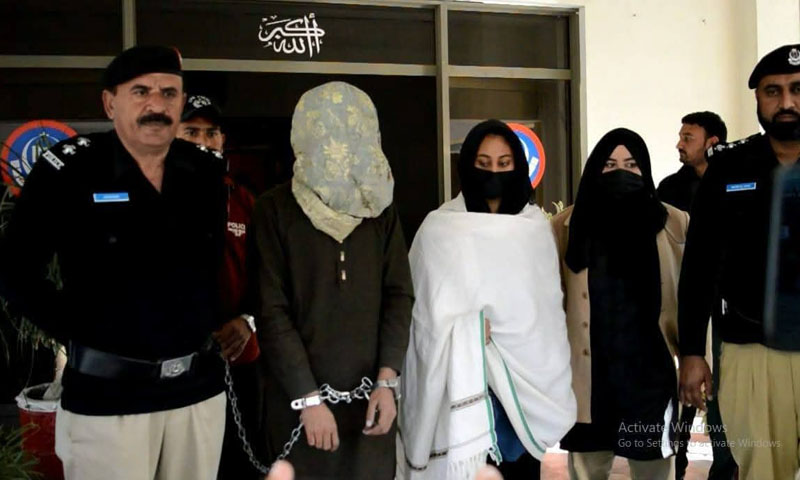- Web Desk
- Feb 09, 2026
G-B sees unrest after action committee leaders detained
-

- Tanveer Abbas
- May 15, 2025

GILGIT: Protests have erupted in Gilgit-Baltistan following the arrest of Awami Action Committee (AAC) leaders ahead of a planned “grand jirga.”
The AAC — an alliance of political, religious, and nationalist parties — intended to hold the jirga to formulate a common agenda against what it calls “resource capture” and two controversial laws: the Mining Bill and the Land Reforms Bill.
On Wednesday, Gilgit police arrested AAC Chairman and prominent lawyer Advocate Ehsan Ali, Senior Vice President Mehboob Wali, and Finance Secretary Masood while they were holding a meeting in Gilgit to finalise arrangements for the jirga.
On Thursday, police detained AAC Youth Wing Chairman Asghar Shah, along with leaders Abrar Bagoro and Waheed Hassan, outside the Gilgit court where they had gathered to show solidarity with their arrested colleagues. Separately, Skardu police arrested AAC Kharmang leader Shabbir Mayar from a hospital where he was undergoing a medical checkup.
The arrests have sparked strong criticism from political, social, and civil society circles.

The AAC and its allied parties organized protest rallies in over a dozen locations across Hunza, Gilgit, and Baltistan Division, demanding the immediate release of their leaders. Protesters chanted slogans against the federal and regional governments, warning of an escalation if their demands were not met.
The Human Rights Commission of Pakistan (HRCP) has expressed concern at the massive crackdown on political activists in Gilgit-Baltustan and asked the regional authorities to address the grievances of the people.
In a statement the HRCP stated it “is deeply concerned by the reported crackdown on political activists in Gilgit-Baltistan ahead of a grand jirga being organized by the Awami Action Committee to address the region’s rights issues and to safeguard its land and mineral resources.”
Those reportedly arrested—including three senior political leaders, Ehsan Ali, Mehboob Wali and Masood ur Rehman—should be released and no further raids or arrests carried out without just cause. Nor should the threat of arrest be used to suppress people’s fundamental right to express their opinions freely.”
Talking about the issue during G-B Assembly session on Thursday, Chief Minister Gulbar Khan said Gilgit-Baltistan gained independence from Dogra rule in 1947 and voluntarily acceded to Pakistan, and since then, the region has stood firmly with the Pakistani government and armed forces. He mentioned that during the recent Pak-India tensions, some individuals claimed that Gilgit-Baltistan could not bear the brunt of war and that Pakistan should fight on its own soil. He called such statements “unfortunate” and asserted that those who speak against the Pakistani state and military should be severely punished. “We will not forgive them; they should be hanged,” he said.
Gulbar Khan said the world now recognizes Pakistan as a nuclear power. “All political parties in Gilgit-Baltistan agree that the region has always been, is, and will remain with Pakistan,” he added.
Addressing the session, Interior Minister Shams Lone said strict action would be taken against anyone promoting narratives against the state and military. He mentioned that Advocate Ehsan and other nationalist leaders were arrested for making anti-state statements on May 8. “Such people should be hanged,” he said.
Gilgit-Baltistan uncovers massive fraud in wheat subsidy scheme
Opposition leader Kazim Maisam responded by saying, “This is Gilgit-Baltistan, not Balochistan or Punjab. If anyone should be hanged first, it should be Interior Minister Shams Luon himself, as he also comes from a similar political background.” He emphasized that no one in Gilgit-Baltistan supports India or Modi and warned against creating new problems by arresting people. “Gilgit-Baltistan is a disputed territory, and this is also the official stance of the Pakistani state,” he added.




